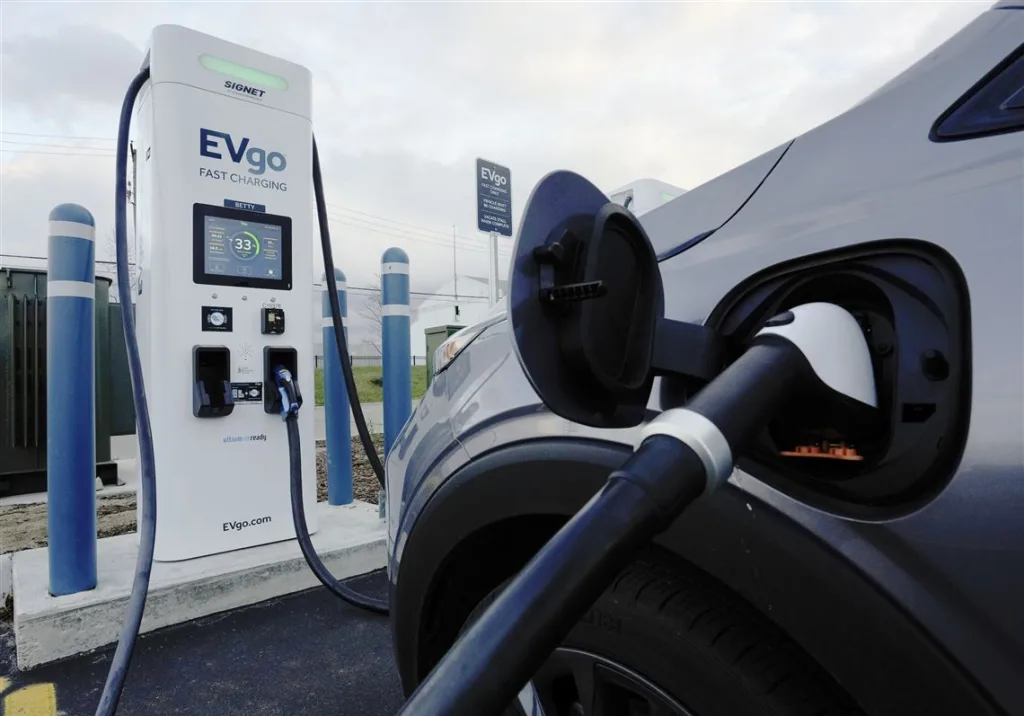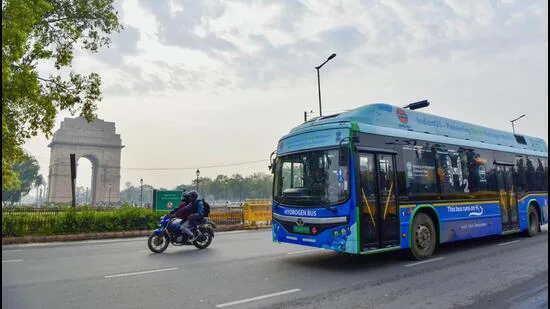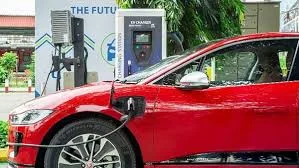Delhi, the bustling capital of India, is taking a giant leap towards a greener future with its ambitious new electric vehicle (EV) charging policy. This groundbreaking initiative, coupled with updated pollution certificate requirements, aims to transform the city’s transportation landscape and combat its notorious air pollution problem.
Table of Contents
Delhi EV Charging Policy: A Game-Changer for the Capital

The Delhi government has unveiled a comprehensive EV charging policy that promises to reshape the city’s approach to sustainable mobility. At the heart of this policy is an audacious goal: to install a staggering 48,000 EV charging points across the city by 2026. This massive expansion of charging infrastructure is designed to address one of the primary concerns of potential EV adopters – range anxiety.
Chief Minister Arvind Kejriwal, while announcing the policy, emphasized its transformative potential: “This policy will not only make EVs more accessible to Delhi’s residents but will also create a robust ecosystem that supports clean energy and reduces our carbon footprint.”
Key Features of the Delhi EV Charging Policy:
- Public-Private Partnership Model: The government is actively encouraging private players to participate in setting up charging stations through various incentives.
- Strategic Placement: Charging points will be installed at key locations including residential areas, office complexes, and public spaces to ensure widespread accessibility.
- Integration with Existing Infrastructure: The new policy builds upon Delhi’s current EV policy, creating a more comprehensive approach to electric mobility.
- Job Creation: The initiative is expected to generate numerous employment opportunities in the EV sector.
[Electric vehicle infrastructure Delhi] (secondary keyword): “Expanding Electric Vehicle Infrastructure Delhi: The Road Ahead”
The expansion of electric vehicle infrastructure in Delhi is set to be a game-changer for the city’s transportation sector. With the planned 48,000 charging points, Delhi aims to have one of the highest densities of EV charging stations among major global cities.
“This extensive network will make owning and operating an EV in Delhi as convenient as using a conventional vehicle,” stated a senior official from the Delhi Transport Department.
Pollution Certificates: A New Approach to Air Quality Control
[Delhi pollution certificates] (primary keyword): “Delhi Pollution Certificates: Ensuring Cleaner Air for All”
Alongside the EV charging policy, the Delhi government is also overhauling its pollution certificate system. These certificates, mandatory for all vehicles plying on Delhi roads, are getting a significant upgrade to better monitor and control vehicular emissions.
Key Changes in the Pollution Certificate System:
- Stricter Emission Norms: The new certificates will enforce more stringent emission standards for all vehicles.
- Digital Integration: The certification process will be digitized, making it more efficient and tamper-proof.
- Regular Renewals: Vehicle owners will need to renew their pollution certificates more frequently to ensure continuous compliance.
[Delhi air pollution control] (secondary keyword): “Delhi Air Pollution Control: A Multi-Pronged Approach”
The revamped pollution certificate system is part of a broader strategy to combat Delhi’s air pollution crisis. By ensuring that vehicles on the road meet strict emission standards, the government hopes to significantly reduce the contribution of vehicular pollution to Delhi’s air quality problems.
“The combination of promoting EVs and tightening pollution controls for conventional vehicles represents a comprehensive approach to improving Delhi’s air quality,” explained an environmental expert associated with the policy formulation.
Implementation Timeline and Goals

The Delhi government has set an aggressive timeline for the implementation of these policies:
| Year | EV Charging Points Target | Pollution Certificate Compliance Goal |
|---|---|---|
| 2023 | 10,000 | 70% of vehicles |
| 2024 | 20,000 | 85% of vehicles |
| 2025 | 35,000 | 95% of vehicles |
| 2026 | 48,000 | 100% of vehicles |
Benefits for Delhi Residents and Environment
The new EV charging policy and pollution certificate system are expected to bring numerous benefits to Delhi’s residents and environment:
- Improved Air Quality: By promoting EVs and stricter emission controls, the policies aim to significantly reduce air pollution levels in the city.
- Cost Savings: EV owners will benefit from lower operational costs compared to conventional vehicles.
- Health Benefits: Reduced air pollution is expected to lead to improved public health outcomes.
- Economic Opportunities: The EV sector’s growth will create new jobs and business opportunities.
Challenges and Solutions
While the policies are ambitious, they also face several challenges:
- Infrastructure Development: Rapidly building 48,000 charging points will require significant coordination and resources.
Solution: The government plans to leverage public-private partnerships and provide incentives to speed up deployment. - Grid Capacity: The increased electricity demand from EVs could strain the existing power grid.
Solution: The policy includes provisions for smart charging and load balancing to manage electricity demand effectively. - Public Awareness: Many residents may be unaware of the benefits of EVs or the new pollution certificate requirements.
Solution: The government plans to launch comprehensive awareness campaigns to educate the public about these initiatives.
Conclusion

Delhi’s new EV charging policy and updated pollution certificate system represent a bold step towards a cleaner, more sustainable future for the capital city. By addressing both the infrastructure needs for electric vehicles and tightening controls on vehicular emissions, Delhi is positioning itself as a leader in urban environmental management.
As these policies roll out over the coming years, Delhi residents can look forward to cleaner air, more sustainable transportation options, and a city that’s at the forefront of the green mobility revolution. The success of these initiatives could serve as a model for other Indian cities and urban centers around the world grappling with similar environmental challenges.


